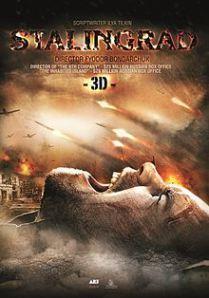There is some major, world-changing crap going down in Crimea right now that is way above our pay-grade. Russia effectively invaded and occupied the Ukranian peninsula known as Crimea, which had once been part of the Russian territories for over two centuries. Then, Russia claimed that 97% of Crimeans had voted in a highly suspicious referendum to split from the Ukraine and re-join Russia. However, the United Nations is not so sure that vote was actually legal if for no other reason than because it came while Crimea was being occupied by Russian troops. President Obama is now sanctioning the heck out of Russian officials and companies.
But what does all of this mean for Hollywood? According to THR, Crimea’s questionable legal status means Hollywood doesn’t currently know how to legally distribute its’ movies to the peninsula’s 14 theaters. Thinking longer term, though, this throwback to the Cold War of yesterday may help finally push along a long-proposed policy to severely limited the number of Hollywood films which will be allowed to come out in Russia. Let’s break it down.
Among all global markets for film, most of the European territories declined last year due to poor local economic conditions (e.g., Germany was down 15%). However, Russia was actually up 8% over 2012, pulling in a collective gross of $1.3 billion from all films released in the territory. That’s good enough to make it the 8th leading global market for film.

Stalingrad 3D was their highest-grossing film, the first Russian-made film to top the country’s year-end chart in over 20 years. However, Iron Man 3 and The Hobbit: Desolation of Smaug were #2 and #3 respectively on the year-end list. In fact, Hollywood films accounted for $860 million (or 70%) of Russia’s $1.3 billion gross. Russia only saw the releases of 75 Russian-made films versus 199 United States-made films last year.
Compare that to the days when the Soviet Union was still a thing, and no more than 6 United States films were allowed to be released in the Soviet Union per year. Russia’s cultural minister Vladimir Medinsky, a loyalist of Russian PresidentVladimir Putin, misses those days, pointing to it as an example this past January to back up his proposal to introduce quotas on Hollywood imports pegged to the number of local releases. He wanted to somehow ensure that between 20 and 24% of all screen time in Russian theaters per year would be devoted to homegrown films. Earlier this week, Russian parliamentarian Robert Shlegel went way further with it, introducing a bill which would ensure that 50% of all films released in Russia a year would be homegrown. The other half would be foreign, keeping in mind that 42% of the 466 foreign films released in the territory last year came from Hollywood.
So, basically, they want to stimulate their own local film market by severely limiting the number of foreign releases allowed in the country, or, in other word, they want to copy off of China. One might assume that Hollywood is being made a victim in the larger-stakes war of words and sanctions between Obama and Putin. That’s not entirely true since the idea of placing quotas on the number of Hollywood imports has been kicking around in Russia for several years now. They are becoming an increasingly more nationalistic country, and they probably in no way like seeing their film market being so thoroughly ruled by big budget, tentpole Hollywood releases. However, it’s only in this current environment amid the Crimea controversy where Russia might actually institute such a severe policy change. Make no mistake about it – if Shlegel’s bill passes unchanged it will be severe. To make up for the loss of foreign films, the Russian film market would have to go from making 75 films a year to 250. That sounds like the perfect recipe for an influx of government-funded propaganda films, but a fairly major blow for Hollywood.
Of course, in the actual universe of the films Hollywood seems again ready to embrace the notion of the Russians as the bad guys, like so many Cold War era films of old. That didn’t work out so well for Jack Ryan: Shadow Recruit and its Russian bad guys, but now we have to wonder if Russia will let any hypothetical future Hollywood films featuring Russians antagonists to actually make it into their theaters. Where’s a a good ole “If I can change, and you can change everybody can change” Rocky speech when you need one?
Sources: THR, THR

